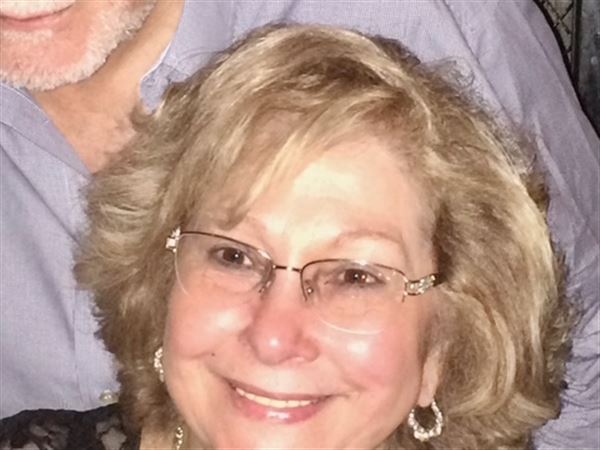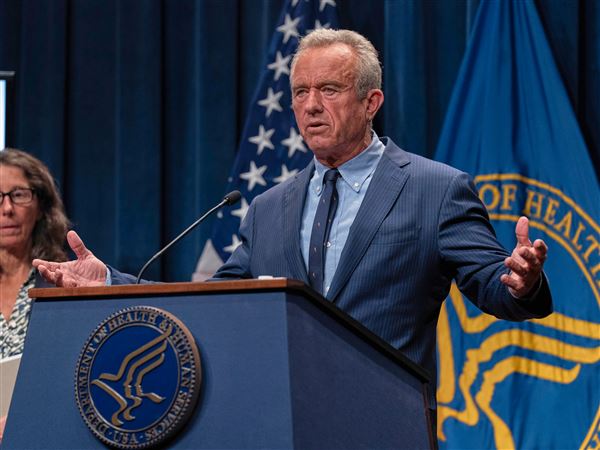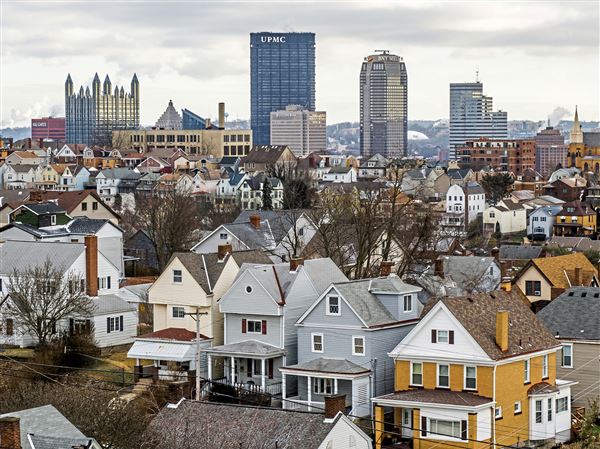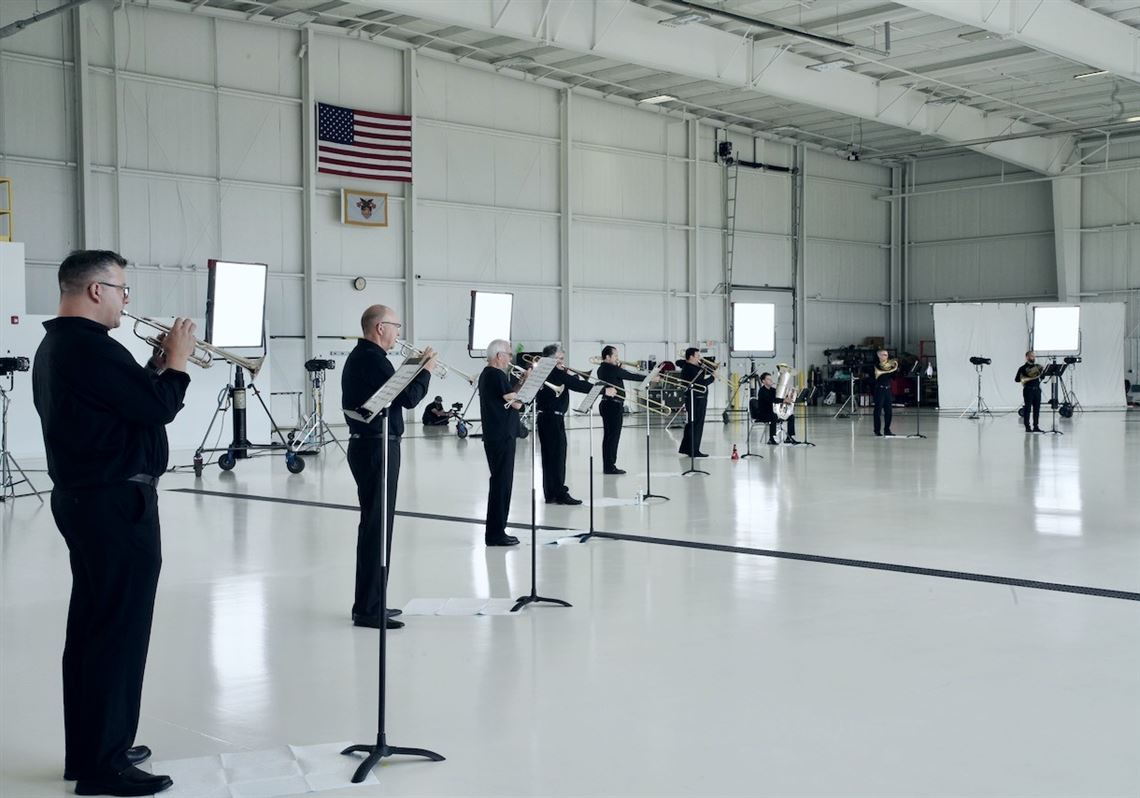Talk about social distancing.
The brass and woodwinds sections of the Pittsburgh Symphony Orchestra performed in an airplane hangar in Washington County for sections of the latest episode of the digital series, “Front Row.”
The PSO’s head of artistic planning, Mary Persin, wanted to create an all-American program for this first installment of a two-part episode, “For the People,” envisioning the vastness, variety and possibilities of the landscapes of the U.S. The episode premiered Friday and is available via streaming through July 22.
To musicians took over the Washington Penn Plastics Hangar at the Washington County Airport in South Franklin, fanning out throughout the massive space. Strings musicians performed works back at Heinz Hall.
The episode begins with an apt composer, Aaron Copland, whose music captures the spirit of the American West. Resident conductor Andrés Franco led Copland’s well-known “Fanfare for the Common Man,” its booming percussion filling the expansive hangar.
WQED-FM artistic director Jim Cunningham and Ms. Persin served as musical guides for the audiences as the concert highlighted several American composers, moving back and forth from the hangar to Heinz Hall.
Mr. Cunningham briefly discussed Philip Glass’ time as composer-in-residence for Pittsburgh Public Schools, fresh from the Juilliard School in New York. He eventually went back to the many pieces he composed during his time in the Steel City.
Returning to Heinz Hall, musicians performed Glass’ “Quarter note = 96 Quarter note = 160,” a flowing piece that gathers speed and is punctuated by sharp, quick notes.
Composer Anthony Plog’s work was also featured in a performance of the first movement of his “Four Sketches for Brass Quintet,” a fast-paced work that could easily soundtrack a passenger running late for a flight at the airport.
The concert highlighted a few American women composers as well. Ms. Persin referred to them as a “powerhouse constellation” that began with Black composer Florence Price. The quartet played the second movement in her “String Quartet No. 1 in G Major,” by turns beautiful and mysterious with the pizzicato lending a creeping quality to the second section.
Composer Libby Larsen joined the program via streaming. She said she was captivated by music at an early age but didn’t realize composing could be her career until college. She also said she liked to push performers to “the edge of their ability to play.” That was the case with her “Jazz Variations for Solo Bassoon.” Nancy Goeres played it skillfully, taking full advantage of the instrument’s capabilities and very low tones.
After jazz came another American musical idiom, the blues, courtesy of Gunther Schuller and his “Suite for Woodwind Quintet,” which retained the genre’s familiar rhythm.
The PSO introduced Pittsburgh audiences for the first time to contemporary composer Jessie Montgomery to round out the first segment of the two-part program. Ms. Montgomery spoke to viewers about the driving pizzicato of her “Strum for String Quartet.” The languid introduction in the piece breaks into a fierce intensity with sudden shifts in melody. She referred to it as an “active, acrobatic piece,” and it lived up to its name with musicians strumming their strings like guitars in portions of the work.
The second part of “For the People” premieres at 7:30 p.m. Jan. 29. Part two includes more works by Ms. Larsen and Ms. Montgomery as well as Jennifer Higdon, Joan Tower and her “Fanfare for the Uncommon Woman,” and ragtime great Scott Joplin.
Tyler Dague: rdague@post-gazette.com, 412-263-1569 and on Twitter @rtdague.
First Published: January 23, 2021, 4:56 a.m.

















